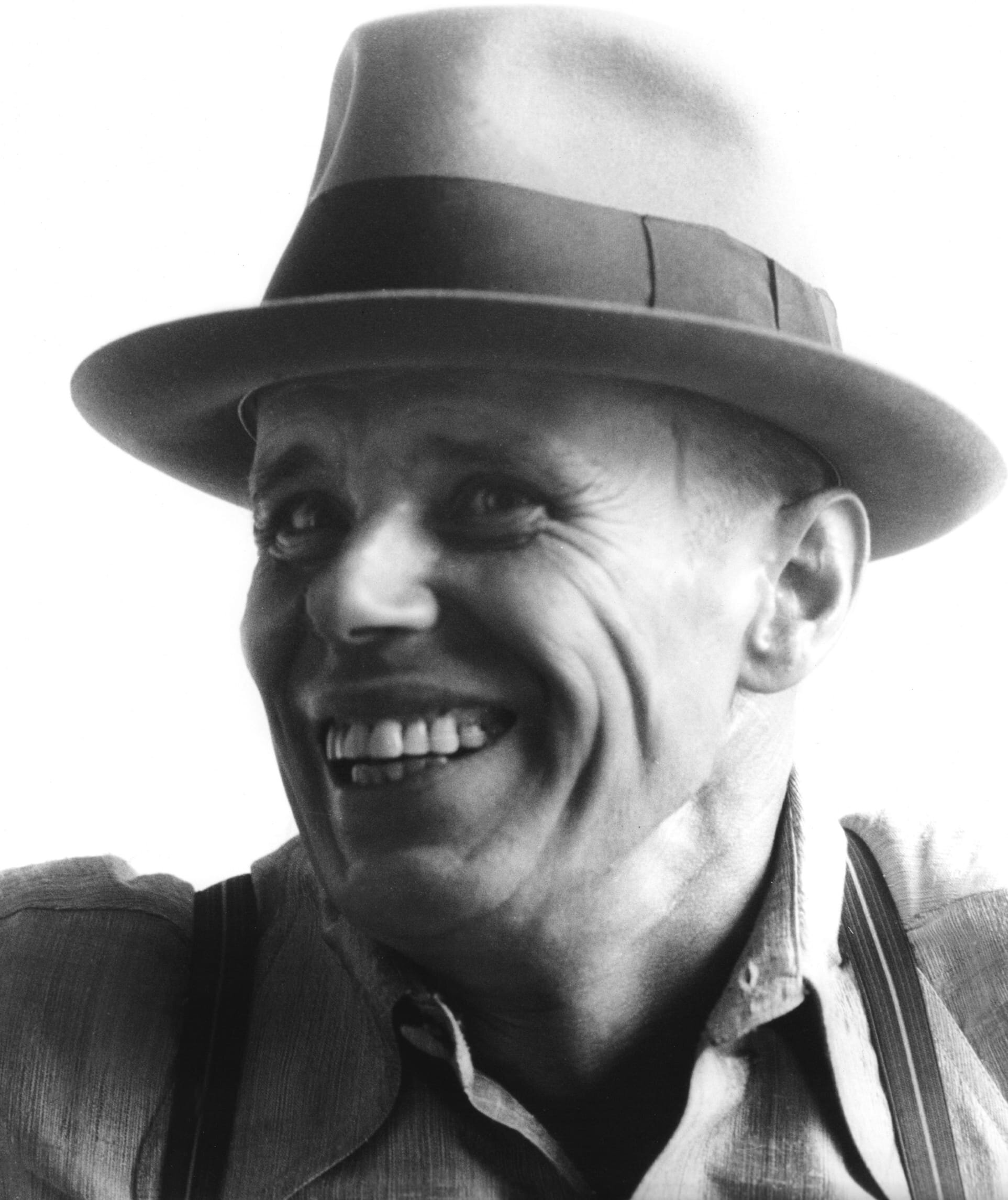DOUBLE AGENTS - TALK III - 29.11.2019
Between Artists/Curators/Collectors
Rethinking Roles and Practices in the Arts
MAGPIE ART COLLECTIVE, “Chigubu”, 2017 / Trash, Water - Plastic-Bottles
You are cordially invited to join us for a glas of wine, some snacks and scintillating discussion!
Next edition of our series “DOUBLE AGENTS” :
27.11. / from 19:00 Uhr
DOUBLE AGENTS / Talk III
Lecture: “Appeal for an Alternative” / The Project “beuys2021” by Eugen Blume and Catherine Nichols
Eugen Blume, who was the Director of the Hamburger Bahnhof art museum from 2001 to 2016, often found himself, as a curator, in the role of a “DOUBLE AGENT” by nature of the fact that he was always putting together boundary-transgressing art exhibitions on the most diverse themes. The 2016 exhibition on Joseph Beuys, “Das Kapital. Schuld – Territorium – Utopie” (“Capital. Debt – Territory – Utopia”) revolved around Beuys’ pioneering environment Das Kapital Raum 1970–1977 (The Capital Space 1970-1977) from the Marx Collection. A key theme in this was the new definition of the concept of capital offered by Beuys, the founder of social sculpture. Here, detached from finance, the creative potential of the human being was placed at the centre of economic thinking. Beuys’ exhibition was therefore not only concerned with the critique of capitalism but sought to establish a positive interpretation of the concept of capital. The actual capital asset here was the asset of art. It is possible that this upgrading and revaluation of the concept of capital has ultimately led to contemporary art currently functioning as a portfolio model. In terms of the “expanded concept of art”, however, it was not only in an economic context that Beuys functioned in various respects as a “double agent”, as an initiator. In his work as an artist he also repeatedly tried to intervene directly in the politics of the day. In 1979, for example, he stood as a direct candidate for “Die Grünen” (“The Greens”) in the European Parliament election. In general, Beuys saw shaping the future as both an artistic and a social matter – and this was reflected again in his art project 7000 Eichen – Stadtverwaldung statt Stadtverwaltung (700 Oaks – City Forestation Instead of City Administration), which was first publicly presented at the documenta 7 in 1982.
To celebrate Beuys’ centenary in 2021, Eugen Blume and Catherine Nichols are coordinating a large-scale inter-institutional project, “beuys2021”; it will be based in the state of North Rhine-Westphalia and will involve ten of its museums. Eugen Blume, once again a “double agent” in many respects, will be talking about the project and these themes at the Salon Villa Erxleben on 27 November from 7pm. Joseph Beuys’ “Appeal for an Alternative” is still virulent.
Eugen Blume, born 1951, 1976 to 1981 degree in art history at the Humboldt University, thesis on Joseph Beuys, 1981 research associate at the Kupferstichkabinett (Museum of Prints and Drawings) in Berlin, 1995 to 2016 at the Nationalgalerie (National Gallery), here 2001 to 2016 Director of the Hamburger Bahnhof Museum for Contemporary Art
27.11. / ab 19:00 Uhr
DOUBLE AGENTS / Talk III
Eugen Blume
Vortrag „Aufruf zur Alternative“ zu Joseph Beuys anlässlich der Ausstellungen und Festivitäten zu seinem 100. Geburtstag („beuys2021“ von Eugen Blume und Catherine Nichols).
Eugen Blume, von 2001 bis 2016 Leiter des Hamburger Bahnhofs, war als Kurator mehrfach in der Rolle eines “DOUBLE AGENT“, schon indem er immer wieder grenzüberschreitende Kunstausstellungen zu verschiedensten Themen realisiert hat. So kreiste die Ausstellung zu Joseph Beuys „Das Kapital. Schuld – Territorium – Utopie“ von 2016 um das wegweisende Beuys-Environment Das Kapital Raum 1970–1977 aus der Sammlung Marx. Ein zentrales Thema war dabei die neue Definition des Kapital-Begriffs bei Beuys, dem Begründer der Sozialen Plastik. Vom Geldwesen losgelöst rückt dort das schöpferische Potenzial des Menschen in den Mittelpunkt des ökonomischen Denkens. Die Ausstellung damals bewegte sich also nicht bloß in Kapitalismuskritik, sondern suchte im Sinne von Beuys eine positive Ausdeutung des Kapitalbegriffs. Das Vermögen der Kunst war hier das eigentliche kapitale Vermögen. Womöglich wurzelt in dieser– immer wieder neu diskutierten - Auf- bzw. Neuwertung des Kapital-Begriffs letztendlich auch das aktuelle Fungieren von zeitgenössischer Kunst als Anlagemodell. Beuys wirkte im Sinne des „Erweiterten Kunstbegriffs“ aber nicht nur im ökonomischen Zusammenhang in mehrfacher Weise als „Doppel-Agent“, als Anstoßgeber. Zudem suchte er in seiner Tätigkeit als Künstler immer wieder, auch direkt in die Tagespolitik einzugreifen. So kandidierte er zum Beispiel 1979 für das Europarlament als Direktkandidat für „Die Grünen“. Die Gestaltung von Zukunft war für Beuys generell sowohl künstlerisches als auch gesellschaftliches Thema – gespiegelt dann noch einmal in seiner Kunstaktion 7000 Eichen – Stadtverwaldung statt Stadtverwaltung auf der documenta 7 von 1982. Zum 100. Geburtstag von Beuys, 2021, koordiniert Eugen Blume zusammen mit Catherine Nichols für das Land NRW das große institutionsübergreifende Projekt „beuys2021“, an dem sich dort zehn Museen beteiligen.
Aus diesem Anlass und zu diesen Themenstellungen wird Eugen Blume, erneut „Doppel-Agent“ in mehrfacher Richtung, im Salon Villa Erxleben am 27. November ab 19.00 Uhr berichten. Der „Aufruf zur Alternative“ von Joseph Beuys bleibt virulent:
Eugen Blume, geboren 1951, 1976 bis 1981 Studium der Kunstgeschichte an der Humboldt-Universität, Diplomarbeit über Joseph Beuys, 1981 wissenschaftlicher Mitarbeiter am Kupferstichkabinett in Berlin, 1995 bis 2016 an der Nationalgalerie, hier 2001 bis 2016 Leiter des Hamburger Bahnhof:
co-hosted by:
FREEHOME, MOMENTUM and Gallery KLEINERVONWIESE











